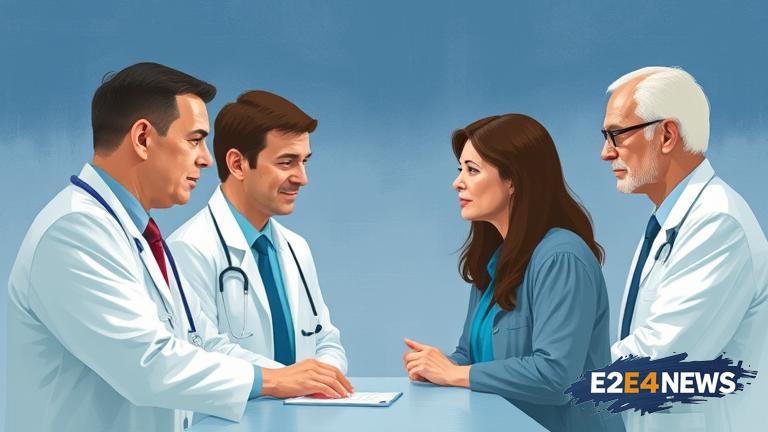The US healthcare system has been under scrutiny for its complex and often fragmented nature, leading to calls for reform and improvement. Recently, experts have been weighing in on the importance of information sharing in healthcare, citing its potential to improve patient outcomes and reduce costs. The current system is often criticized for its lack of interoperability, making it difficult for healthcare providers to access and share patient information. This can lead to duplicated tests, misdiagnoses, and other errors that can have serious consequences for patients. To address these issues, there have been efforts to develop and implement standardized systems for sharing healthcare information. One such initiative is the use of electronic health records (EHRs), which allow healthcare providers to access and share patient information electronically. However, the adoption of EHRs has been slow, and many healthcare providers continue to rely on paper-based systems. Another challenge facing the US healthcare system is the issue of data privacy and security. With the increasing use of digital technologies in healthcare, there is a growing risk of cyber attacks and data breaches, which can compromise patient confidentiality and put sensitive information at risk. To mitigate these risks, healthcare providers must implement robust security measures, such as encryption and firewalls, to protect patient data. Despite these challenges, there are many examples of successful information sharing initiatives in healthcare. For example, some hospitals and health systems have implemented secure online portals that allow patients to access their medical records and communicate with healthcare providers. Other initiatives have focused on developing standardized languages and protocols for sharing healthcare information, such as the Fast Healthcare Interoperability Resources (FHIR) standard. These efforts have shown promise in improving the quality and efficiency of healthcare, and experts believe that they could have a significant impact on the US healthcare system as a whole. Furthermore, the use of artificial intelligence (AI) and machine learning (ML) in healthcare is also becoming increasingly important, as these technologies have the potential to analyze large amounts of data and provide insights that can inform clinical decision-making. However, the development and implementation of AI and ML in healthcare must be carefully considered, as there are concerns about bias and accuracy. Additionally, there are also concerns about the digital divide and unequal access to healthcare information, particularly in rural and underserved areas. To address these issues, there must be a concerted effort to improve access to digital technologies and ensure that all patients have equal access to healthcare information. The US government has also been taking steps to address these issues, including the passage of the 21st Century Cures Act, which aims to improve the interoperability of healthcare information. Moreover, the Office of the National Coordinator for Health Information Technology (ONC) has been working to develop and implement standards for healthcare information sharing, including the development of a national health IT framework. Overall, the US healthcare system is at a critical juncture, and the importance of information sharing cannot be overstated. By prioritizing interoperability, data privacy and security, and equal access to healthcare information, the US healthcare system can improve patient outcomes, reduce costs, and provide better care for all. The future of healthcare depends on the ability to share information effectively, and experts believe that this can be achieved through a combination of technological innovation, policy changes, and a commitment to improving the quality and efficiency of healthcare. As the US healthcare system continues to evolve, it is likely that information sharing will play an increasingly important role in shaping the future of healthcare. With the right policies and technologies in place, the US healthcare system can become more patient-centered, efficient, and effective, and provide better care for all Americans. The use of telehealth and remote monitoring is also becoming increasingly popular, as it allows patients to receive care from the comfort of their own homes. This can be especially beneficial for patients with chronic conditions, as it allows them to receive ongoing care and monitoring without having to visit a healthcare provider in person. However, there are also concerns about the quality of care provided through telehealth, and the need for standardized protocols and guidelines to ensure that patients receive high-quality care. In conclusion, the US healthcare system is undergoing a significant transformation, and information sharing is playing a critical role in this process. By prioritizing interoperability, data privacy and security, and equal access to healthcare information, the US healthcare system can improve patient outcomes, reduce costs, and provide better care for all. The future of healthcare depends on the ability to share information effectively, and experts believe that this can be achieved through a combination of technological innovation, policy changes, and a commitment to improving the quality and efficiency of healthcare.
